February is Teen Dating Violence Awareness Month
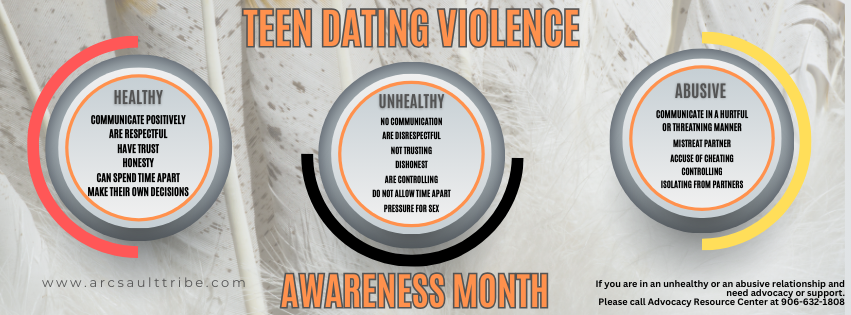
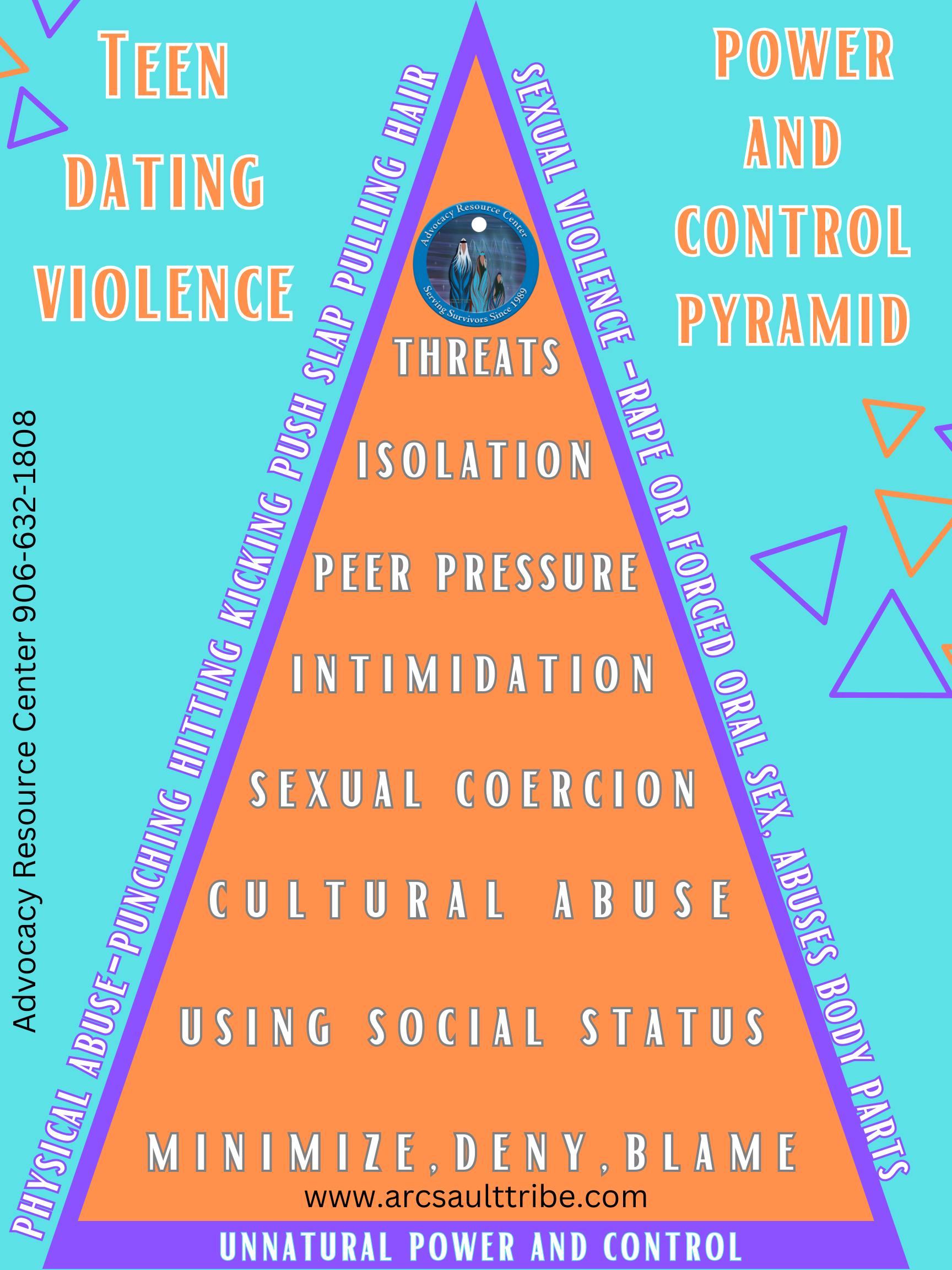
www.Loveisrespect.org is an organization that focuses on all things Teen Dating Violence. Check them out!
Teens in unhealthy relationships may not immediately recognize the signs or behaviors that are indicative of dating violence. Often, teens confuse these unhealthy behaviors with feelings of love and adoration. A young girl may feel that her boyfriend loves her so much because he always wants her with him or prevents her from hanging out with her friends, when, in fact, this is controlling and jealous behavior. Parents, grandparents, aunties, uncles, guardians, and friends must have frequent (sometimes uncomfortable) conversations with teens when a red flag is raised.
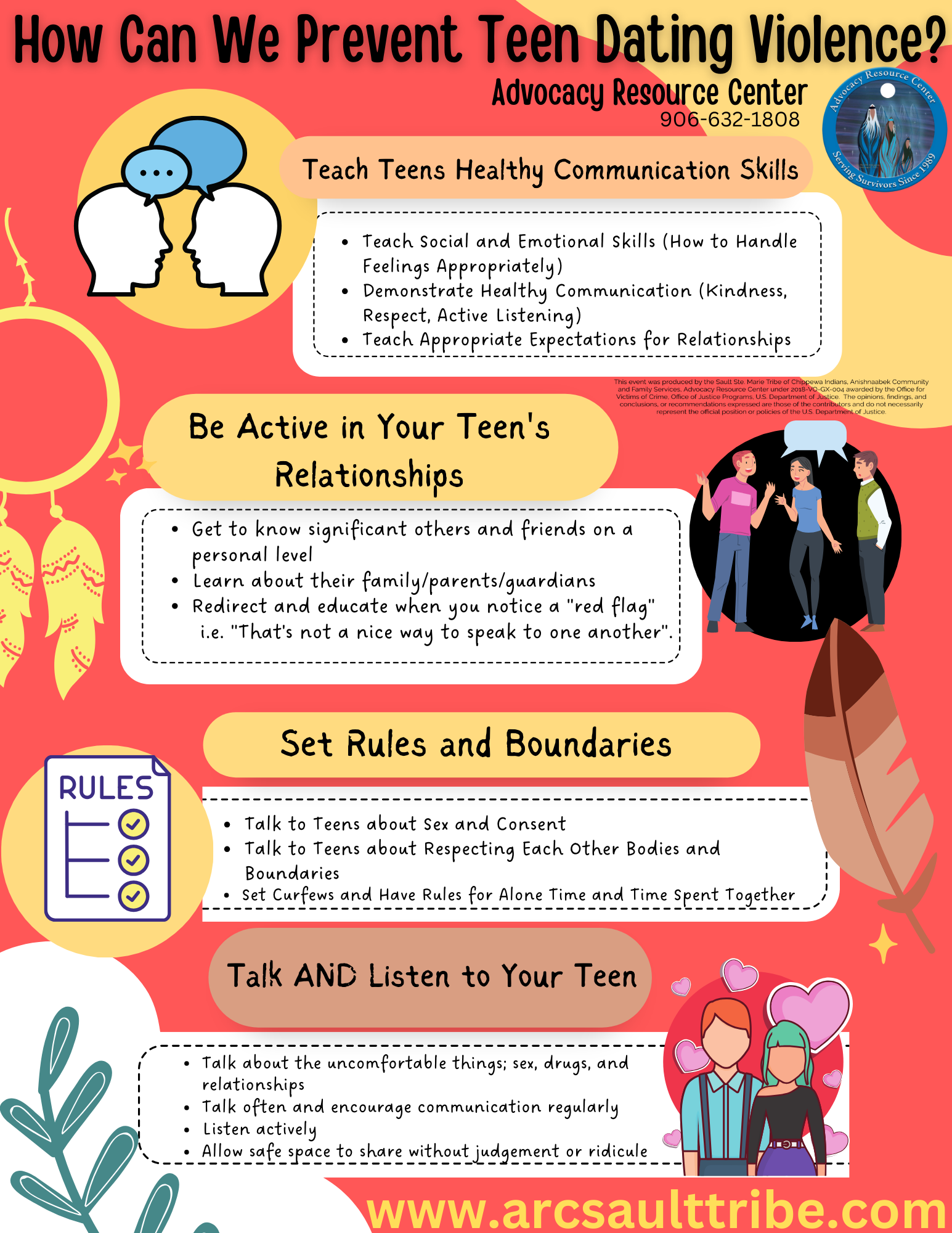
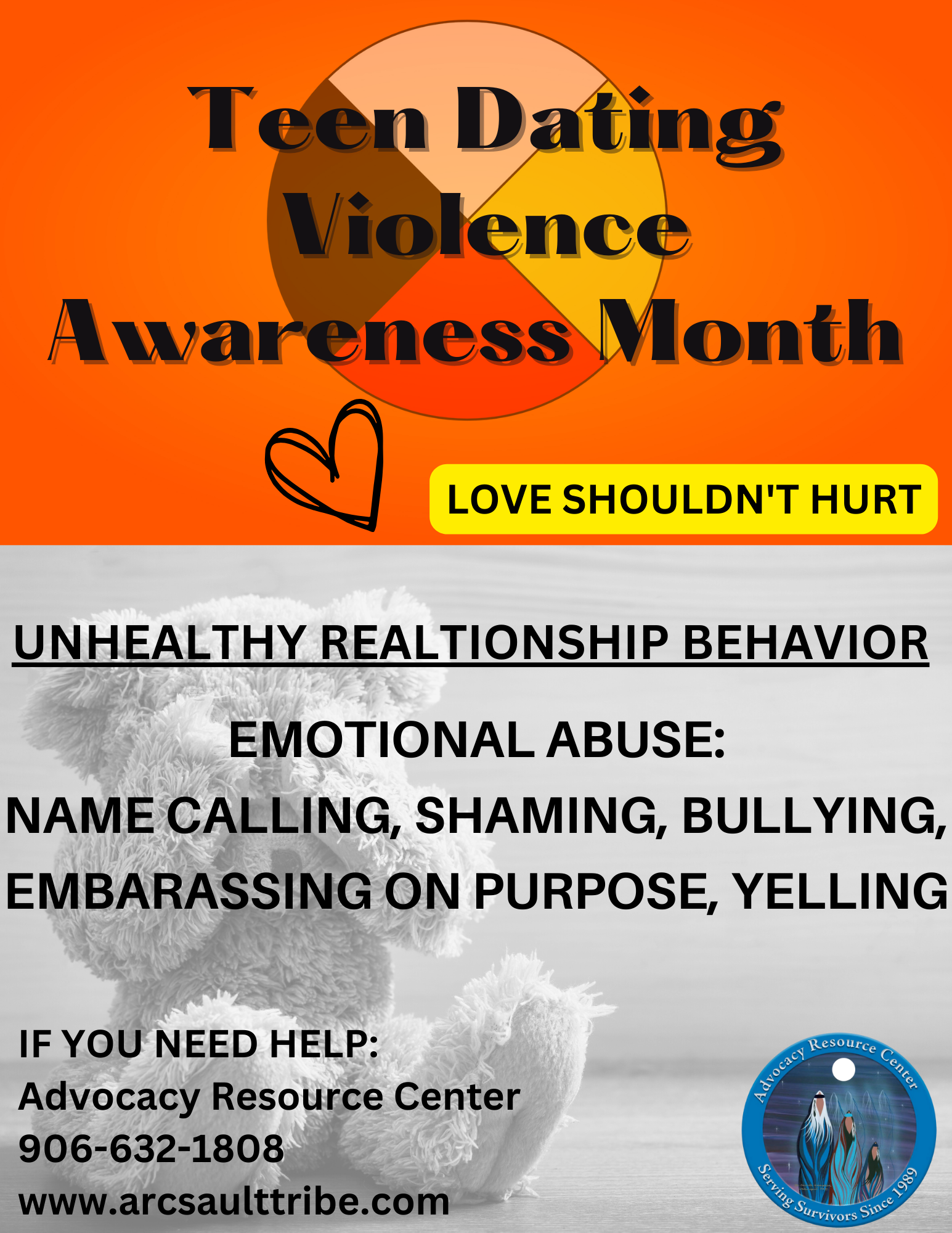
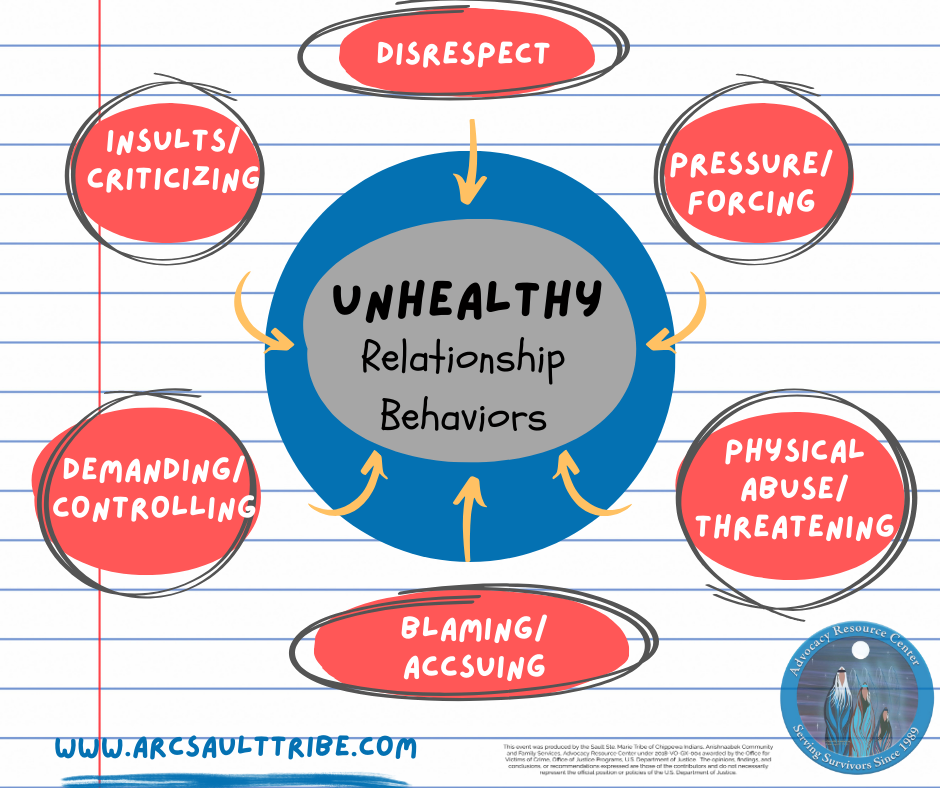
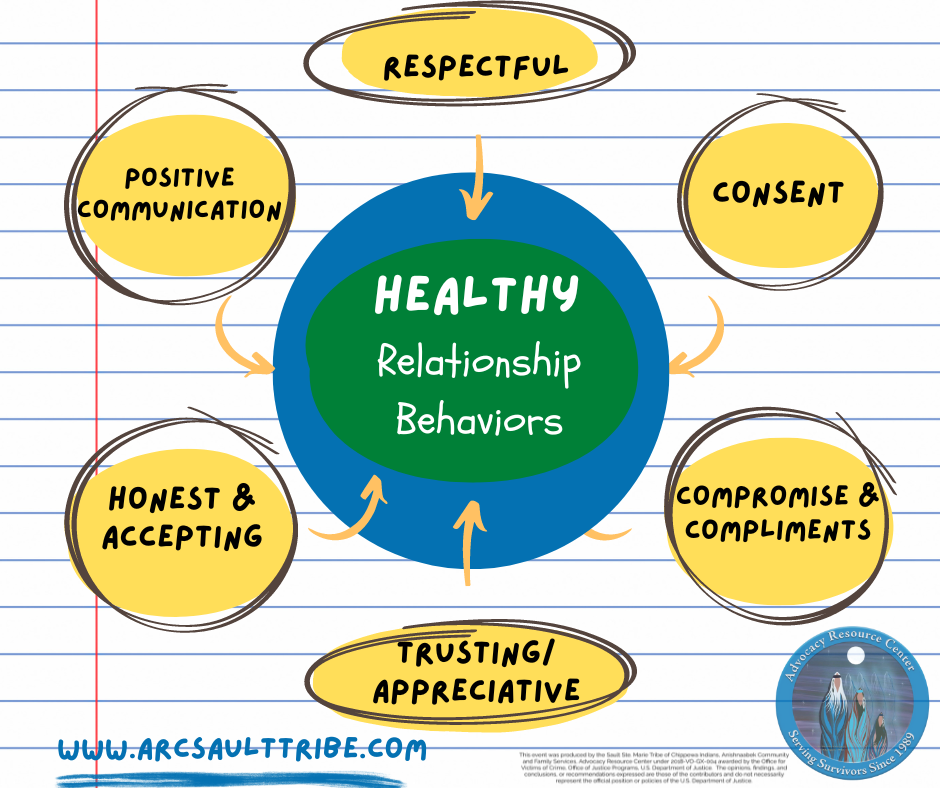
Physical Abuse: Hitting, punching, shoving, restraining, biting, scratching, hair pulling, pinching, or anything that causes harm to another person.
Sexual Abuse: Pressuring or forcing a partner to engage in unwanted sexual activity, using social media or text messages to pressure partners to share photos, raping or coercing a partner to perform sexual acts, preventing the use of birth control or other forms of contraception
Verbal Abuse: Name calling, yelling, insulting, embarrassing, criticizing, etc.
Psychological Abuse: Using threats and intimidation, such as threatening to end the relationship, threats to cause harm to themselves or others, threats to commit suicide, or to cause harm to pets or property. Using controlling tactics such as not allowing their partners to see friends or family or preventing them from going places, controlling what clothes are worn, extreme jealousy, spreading rumors, minimizing behaviors, or blaming their partners for their abusive actions.
Using Technology: Excessive texting, messaging, or calling; cyberbullying; checking partner’s phone without permission; using location services to track partner, stalking; creating fake profiles to spy on a partner; posting on partner's social media; messaging others about a partner; etc.
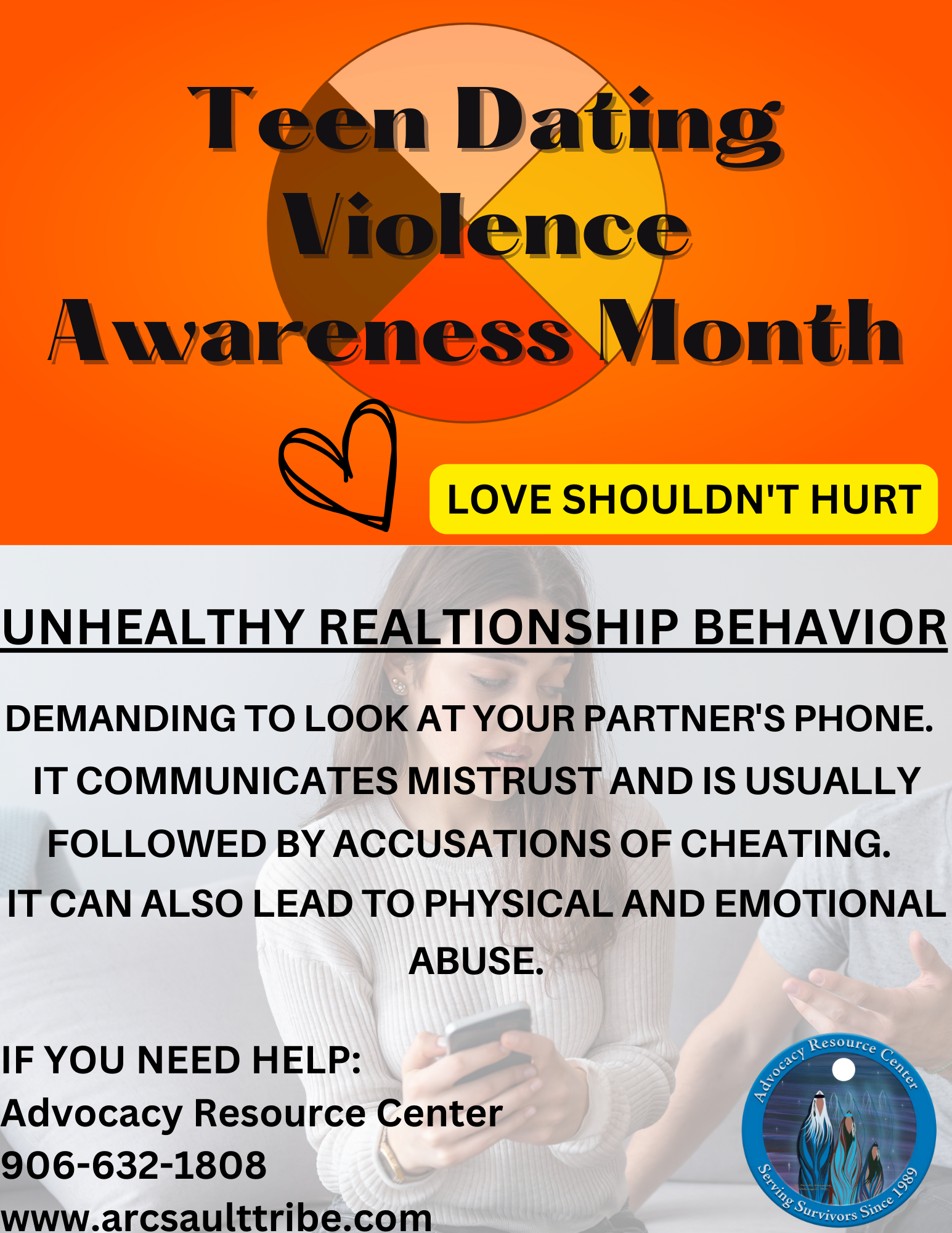
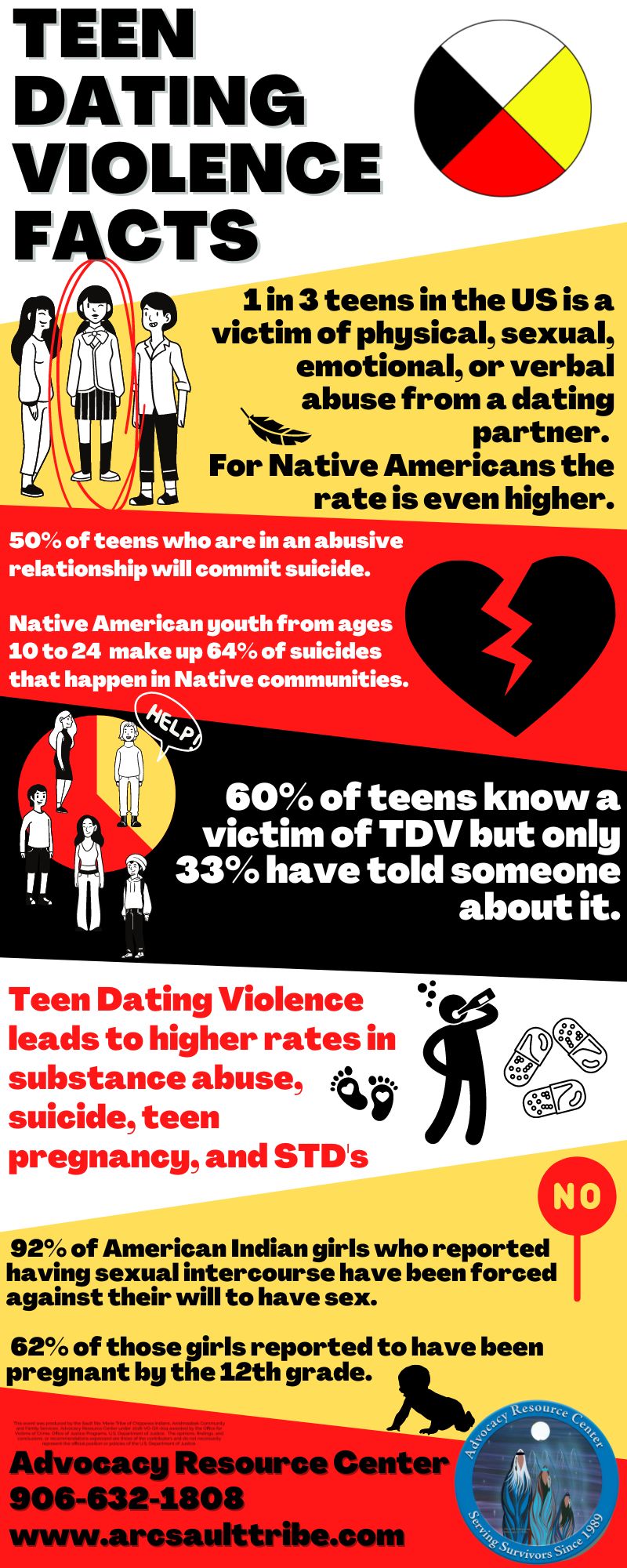
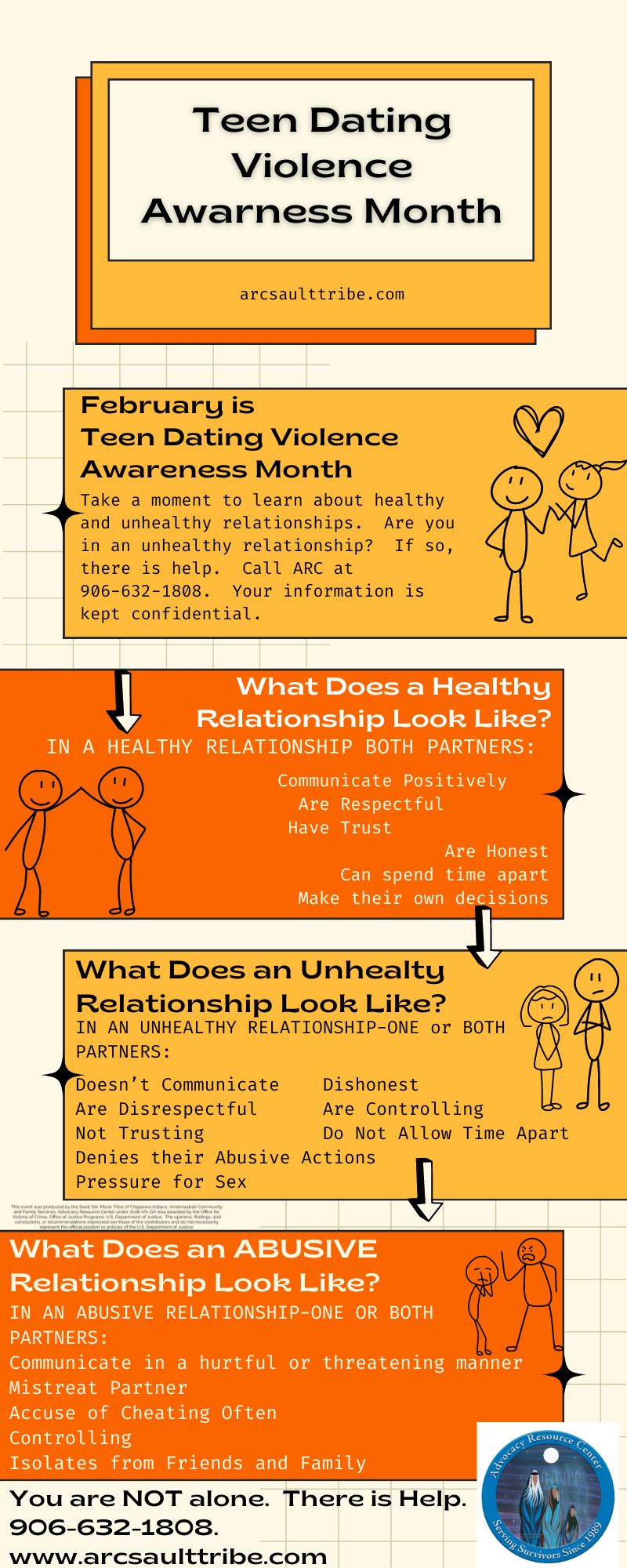
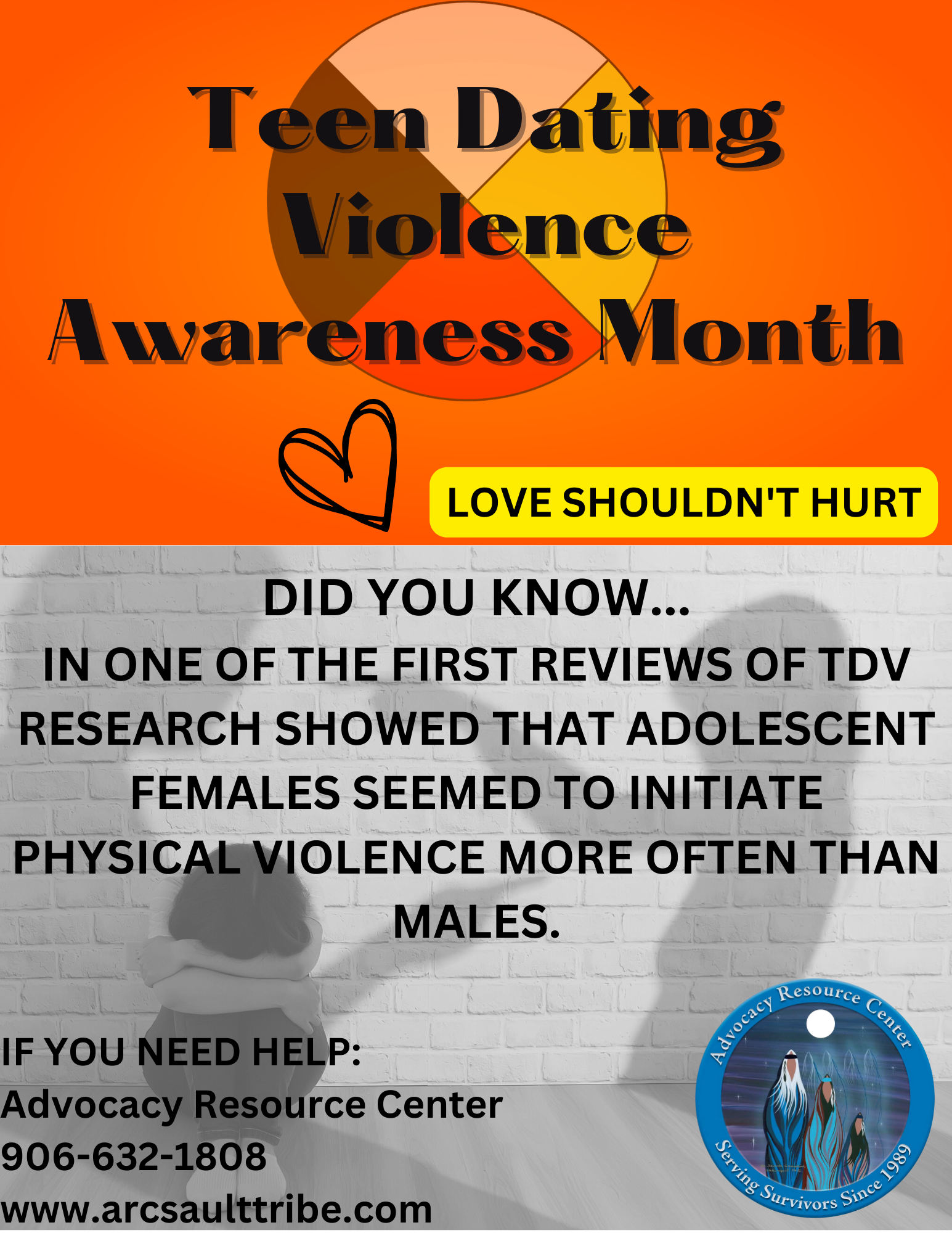
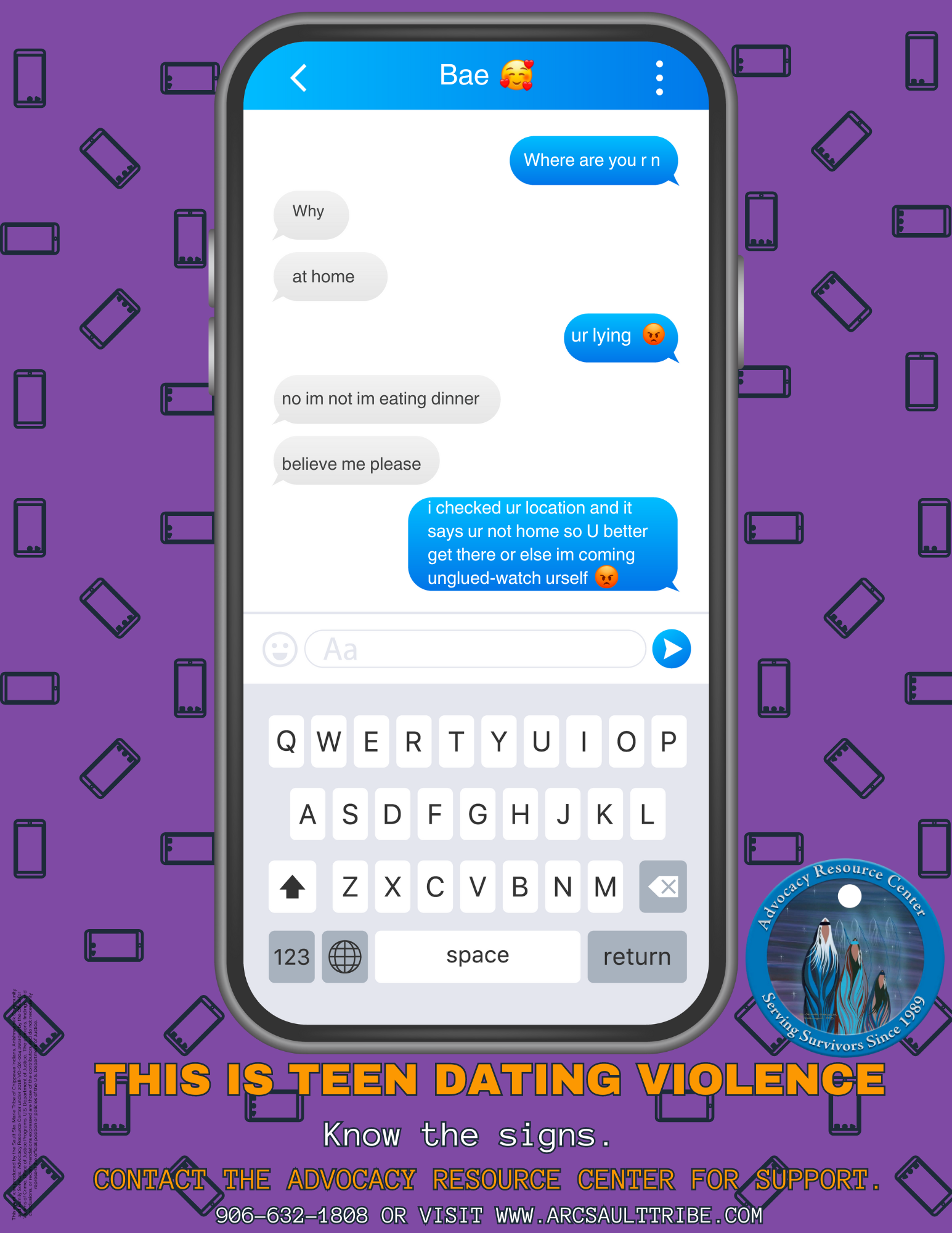
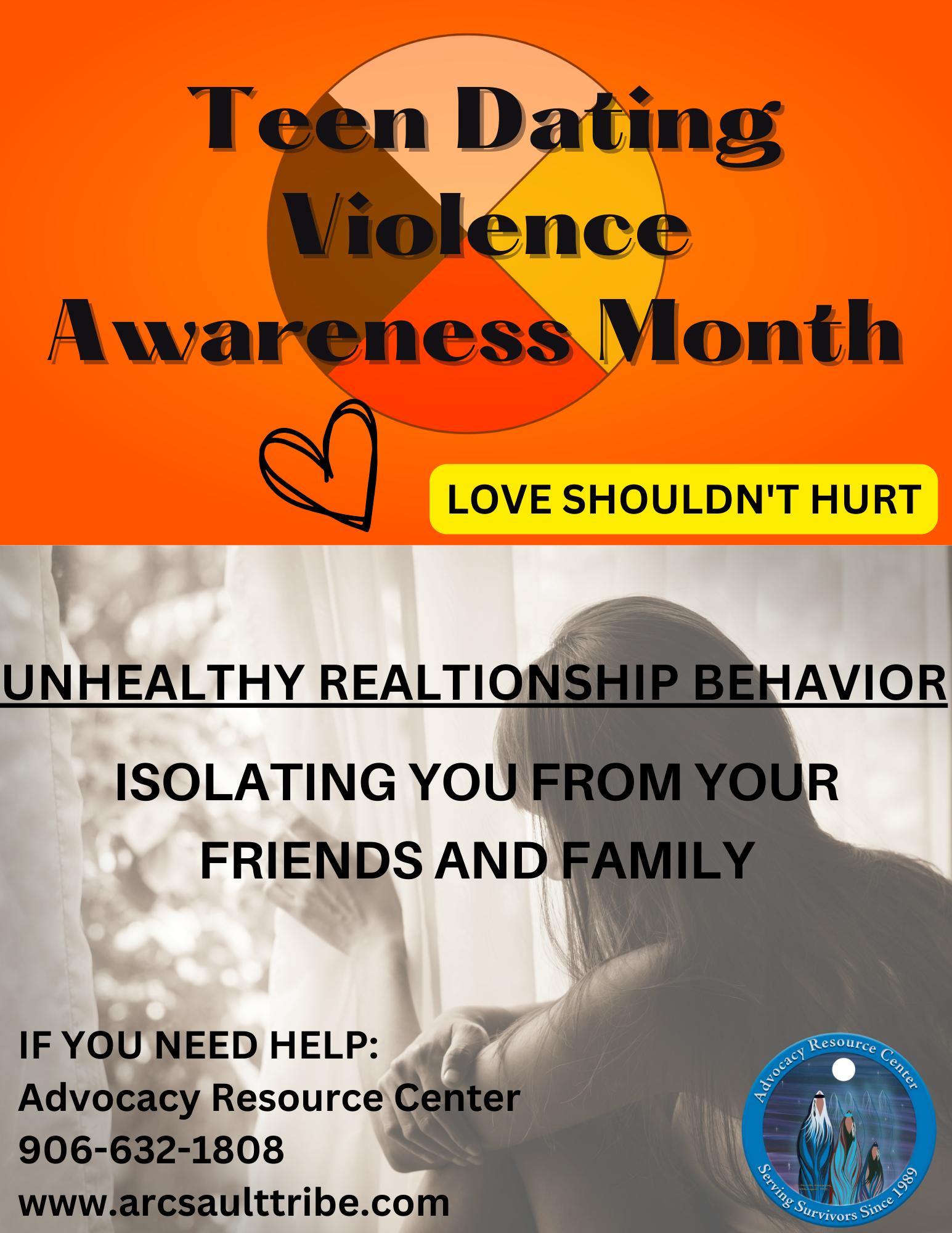
If you find yourself in an abusive relationship or feel you are being treated inappropriately, please tell someone and consider ending the relationship. If your partner is making you uncomfortable or forcing or coercing you to do things you disagree with, know you are not alone. There is help. The Advocacy Resource Center resources to assist with teen dating violence and provide care and counseling to those in need. Call 906-632-1808 to speak to an advocate.